By Debbie Burke
How characters act under stress is one of the best techniques to show what they’re made of.

Photo credit: Lisa Brewster, CC-BY-SA 2.0
If there’s a minor hiccup in their routine, do they take it in stride or become a drama llama?

When life delivers an unexpected setback, do they pick themselves up, dust themselves off, and make a new plan? Or do they stand around wondering “why me”?

Photo credit: Pixabay
A catastrophe threatens their lives or the lives of others. Do they freeze, flee, or run toward the disaster?
Whether large or small, a crisis brings out new aspects of the character’s personality, thought processes, emotional reactions, strengths, and weaknesses.
Are they courageous? Cowardly? Indecisive? Altruistic? Sneaky? Conniving? Manipulative? Driven by selfish interests?
Do they take charge and tackle the problem head on? Or do they avoid it until forced to face it?
Recently I ran across a 1980 book by Terrence Des Pres entitled: The Survivor-An Anatomy of Life in the Death Camps. He did extensive research, studying the differing reactions of people who survived the Holocaust vs. those who didn’t.
In the introduction, he wrote:
“It turns out that survival is an experience with a definite structure, neither random nor regressive nor amoral. The aim of this book has been to make that structure visible.”
Two of his conclusions were startling.
First, newly arrived prisoners had the highest death rate.
Second, criminals had the highest survival rate.
Why?
Newcomers often froze. They went into shock and denial. They couldn’t adjust physically, mentally, or psychologically to their horrifying new circumstances. That paralysis and inability to adapt led to high death rates.
Criminals, on the other hand, adapted better and survived at a higher rate. Because they were used to living outside of society’s rules and norms, they changed their behavior more easily to avoid being caught in the daily dangers of the camps.
How do your characters handle stress? Do they freeze and withdraw? Do they pivot in a new direction? Do they react impulsively? Do they make a rational plan to overcome difficulty? Do they wait/hope for someone else to solve the problem? Do they seek guidance or cooperation from others, or are they lone wolves? Do they manipulate the situation to their advantage?
Here’s an unscientific quiz to test the mettle of characters in your WIP. The questions range from trivial annoyances to life-or-death disasters.
How characters react to small problems may indicate how they treat more serious trials.
Or not. A character who appears fragile or weak on the surface may rise up to show hidden strengths or talents.
Try running all your major characters through the quiz—protagonist and antagonist, as well as secondary characters who play important roles like partners, love interests, family, coworkers, mentors, etc. See what each one does. Discover what conclusions you can draw from their behavior.
There are no right or wrong, good or bad answers. The only meaningful answer is whether a character’s reaction is authentic and true to their personality.
Question #1 – Your character runs out of shampoo in the shower. What does s/he do?
- Screams for someone else to bring more shampoo.
- Uses soap instead even though it leaves hair greasy.
- Says screw it and finishes with water only.
- Wraps up in a towel and drips down the hall to find more shampoo.
- Fill in a different answer.
Question #2 – In a remote location without cell service, your character’s car doesn’t start. The only other vehicle around is a stick shift, which your character never learned to drive. What does s/he do?
- Tries to call Triple A, hoping for a signal.
- Tinkers under the hood to try to start it.
- Starts walking.
- Drives the unfamiliar vehicle, even though the gears grind.
- Remains in the broken-down car with windows up and doors locked.
- Jacks the first car that comes along.
- Fill in a different answer.
Question #3 – Your character lands in a foreign country and doesn’t speak the language. Luggage is lost and a pickpocket steals passport, credit cards, and cash. What does s/he do?
- Screams at airport employees.
- Tackles the thief and beats the snot out of them. And is probably arrested.
- Uses sign language to report thefts to the authorities.
- Contacts the embassy or consulate for help.
- Hopes a sympathetic stranger feels sorry enough to offer assistance.
- Fill in a different answer.
Question #4 – The electricity goes off and there’s no cell service. What does your character do?
- Starts up the generator that s/he bought to prepare for this contingency and proceeds with normal activities.
- Ambushes the prepper neighbor who has the generator and takes it away from them.
- Reads a book by candlelight and thinks “Gee, this is kinda romantic.”
- Hyperventilates. Alternatively, hides under the bed so the bogey man can’t get him/her.
- Goes searching for missing family and friends.
- Seizes this golden opportunity to commit crimes b/c the chances of getting caught or punished are low.
- Fill in a different answer.
Question #5 – The house/apartment catches fire. What does your character do?
- Grabs the already-packed bug-out bag which contains medications, passport, flashdrive backups, and cash.
- Grabs loved ones and pets and runs like hell.
- Grabs a fire extinguisher and fights the blaze.
- Stands and watches because s/he just dropped acid and is enjoying the far-out colors, man.
- Shoves an abusive partner into the flames, slams and locks the door, and runs like hell.
- Fill in a different answer.
Question #6 – Your character’s spouse and child are drowning. S/he can only save one. What does your character do?
- Saves the child.
- Saves the spouse.
- Saves the closest one.
- The decision is too impossible to fathom so they all drown together.
- Prays for a miracle.
- Drowns themselves b/c they can’t live with the guilt.
- Fill in a different answer.
Question #7 – Your character is facing death with no possible reprieve and no way out. What does s/he do?
- Prays.
- Requests a blindfold and a last cigarette.
- Weeps.
- Sends a last message to loved ones.
- Shivers with terror.
- Takes down as many enemies as possible.
- Screams, “This can’t be happening!”
- Fill in a different answer.
Did you learn more about your characters?
Do these insights help your story? Drive it in a new direction?
In a sad, ironic footnote, author Terrence Des Pres died at age 47 by hanging, his death ruled “accidental” by the Madison County (NY) medical examiner’s office.
~~~
TKZers: Please share “different answers” you filled in.
~~~
By book #4 in the Tawny Lindholm Thriller series, I thought I knew the two main characters well. But I learned surprising new facets when they are caught in Hurricane Irma in Dead Man’s Bluff. Stranded in an unfamiliar, flooded Florida landscape without electricity, they must hunt for a missing friend. Soon they discover predators, animal and human, are hunting for them.
Special price today only $.99.

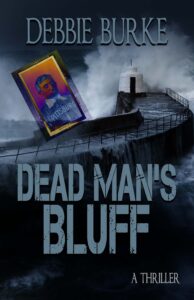
 The news is obviously a great place to find plot ideas. I used to clip news items from actual newspapers and toss them in an “idea box.” When getting ready to develop a new novel, I’d go through the box looking for something that still grabbed me and could be the basis of a story, or at least provide an interesting subplot.
The news is obviously a great place to find plot ideas. I used to clip news items from actual newspapers and toss them in an “idea box.” When getting ready to develop a new novel, I’d go through the box looking for something that still grabbed me and could be the basis of a story, or at least provide an interesting subplot.
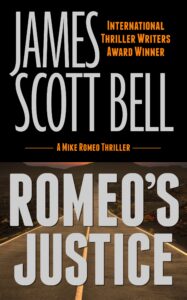


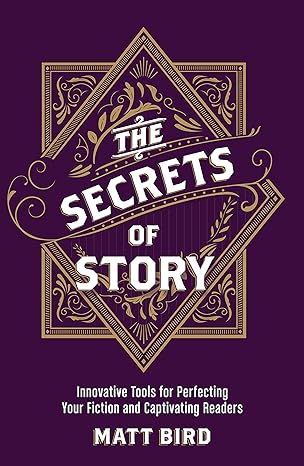
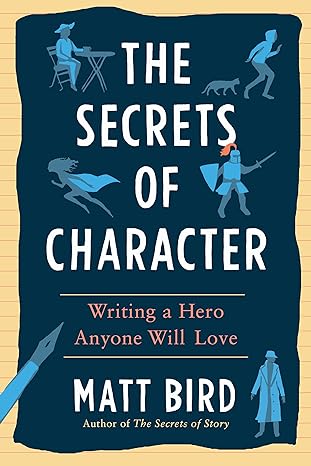
 I recently had a reader comment, “I noticed most of your characters are tea drinkers. Is that because you are?”
I recently had a reader comment, “I noticed most of your characters are tea drinkers. Is that because you are?”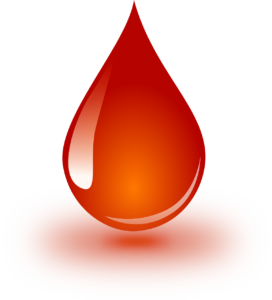 One of the more ubiquitous quotes about writing out there, almost always attributed to Hemingway, is: “There is nothing to writing. All you do is sit down at a typewriter and bleed.”
One of the more ubiquitous quotes about writing out there, almost always attributed to Hemingway, is: “There is nothing to writing. All you do is sit down at a typewriter and bleed.”